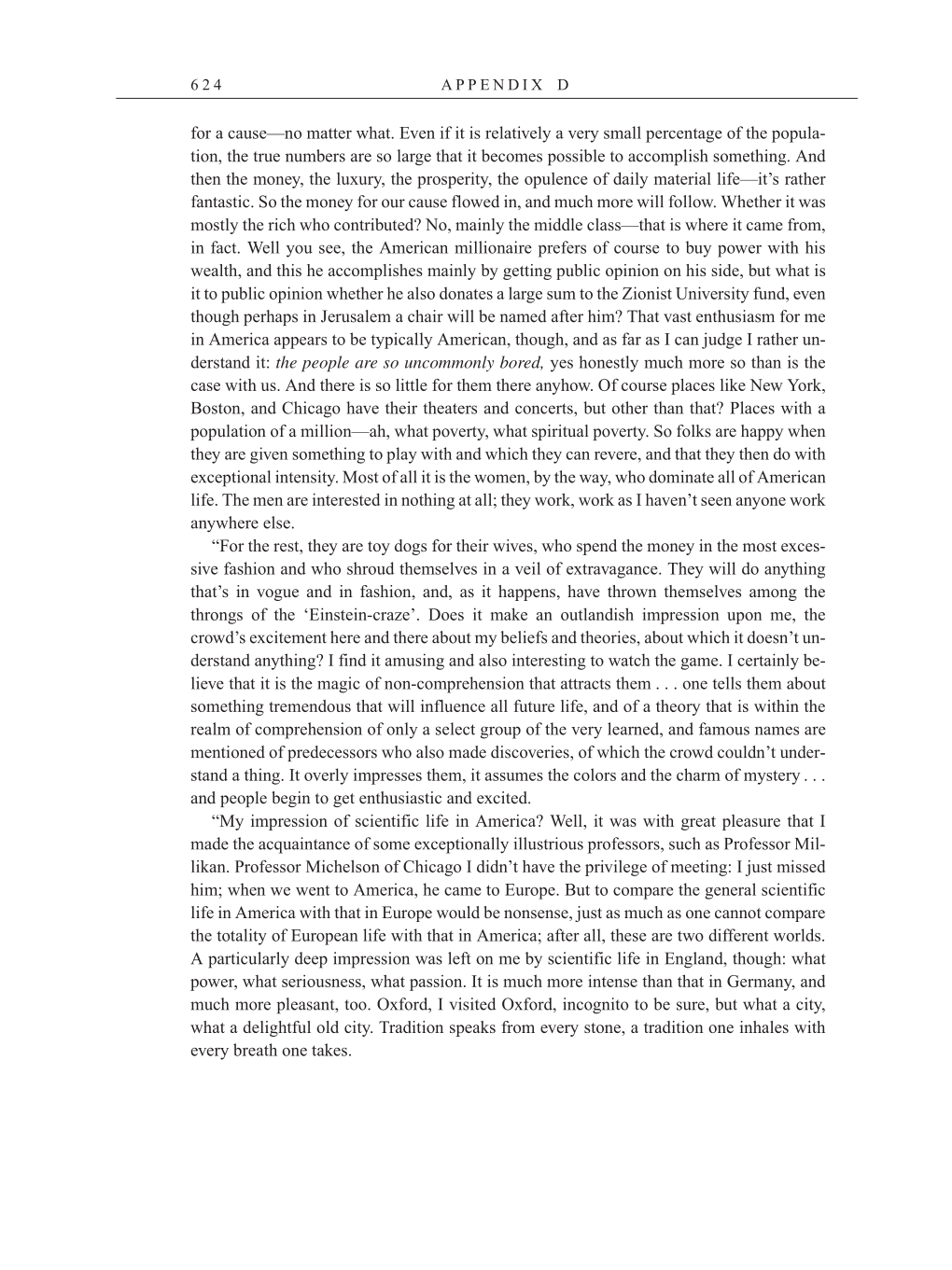6 2 4 A P P E N D I X D
for a cause—no matter what. Even if it is relatively a very small percentage of the popula-
tion, the true numbers are so large that it becomes possible to accomplish something. And
then the money, the luxury, the prosperity, the opulence of daily material life—it’s rather
fantastic. So the money for our cause flowed in, and much more will follow. Whether it was
mostly the rich who contributed? No, mainly the middle class—that is where it came from,
in fact. Well you see, the American millionaire prefers of course to buy power with his
wealth, and this he accomplishes mainly by getting public opinion on his side, but what is
it to public opinion whether he also donates a large sum to the Zionist University fund, even
though perhaps in Jerusalem a chair will be named after him? That vast enthusiasm for me
in America appears to be typically American, though, and as far as I can judge I rather un-
derstand it: the people are so uncommonly bored, yes honestly much more so than is the
case with us. And there is so little for them there anyhow. Of course places like New York,
Boston, and Chicago have their theaters and concerts, but other than that? Places with a
population of a million—ah, what poverty, what spiritual poverty. So folks are happy when
they are given something to play with and which they can revere, and that they then do with
exceptional intensity. Most of all it is the women, by the way, who dominate all of American
life. The men are interested in nothing at all; they work, work as I haven’t seen anyone work
anywhere else.
“For the rest, they are toy dogs for their wives, who spend the money in the most exces-
sive fashion and who shroud themselves in a veil of extravagance. They will do anything
that’s in vogue and in fashion, and, as it happens, have thrown themselves among the
throngs of the ‘Einstein-craze’. Does it make an outlandish impression upon me, the
crowd’s excitement here and there about my beliefs and theories, about which it doesn’t un-
derstand anything? I find it amusing and also interesting to watch the game. I certainly be-
lieve that it is the magic of non-comprehension that attracts them . . . one tells them about
something tremendous that will influence all future life, and of a theory that is within the
realm of comprehension of only a select group of the very learned, and famous names are
mentioned of predecessors who also made discoveries, of which the crowd couldn’t under-
stand a thing. It overly impresses them, it assumes the colors and the charm of mystery . . .
and people begin to get enthusiastic and excited.
“My impression of scientific life in America? Well, it was with great pleasure that I
made the acquaintance of some exceptionally illustrious professors, such as Professor Mil-
likan. Professor Michelson of Chicago I didn’t have the privilege of meeting: I just missed
him; when we went to America, he came to Europe. But to compare the general scientific
life in America with that in Europe would be nonsense, just as much as one cannot compare
the totality of European life with that in America; after all, these are two different worlds.
A particularly deep impression was left on me by scientific life in England, though: what
power, what seriousness, what passion. It is much more intense than that in Germany, and
much more pleasant, too. Oxford, I visited Oxford, incognito to be sure, but what a city,
what a delightful old city. Tradition speaks from every stone, a tradition one inhales with
every breath one takes.
